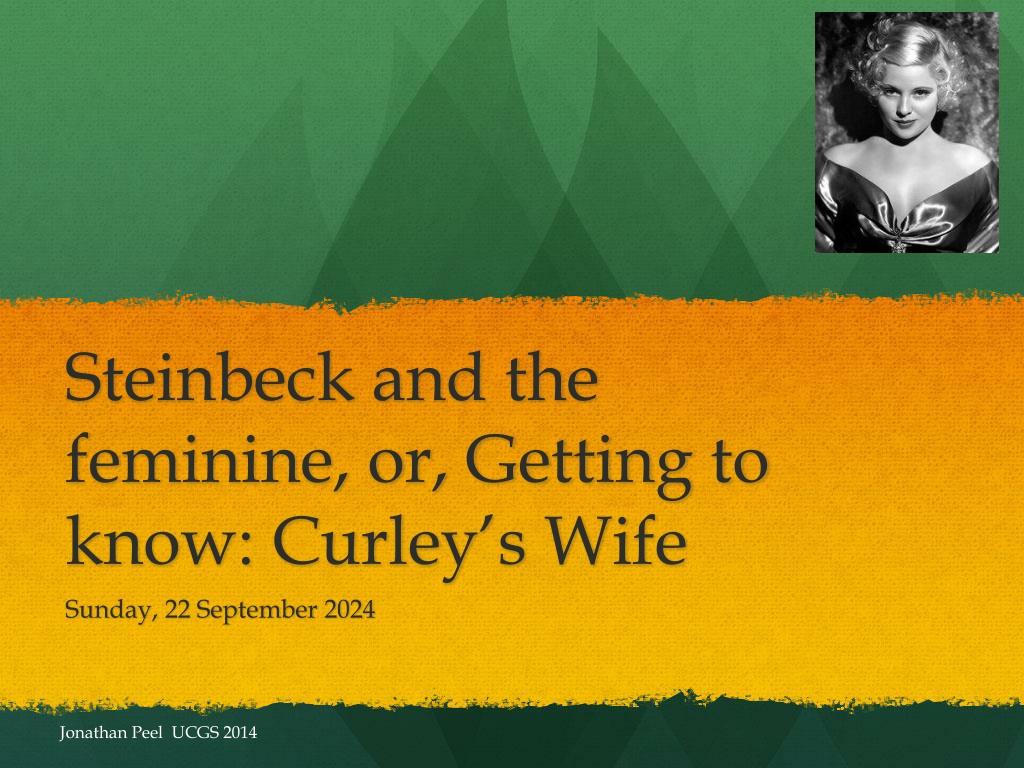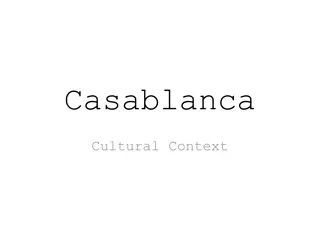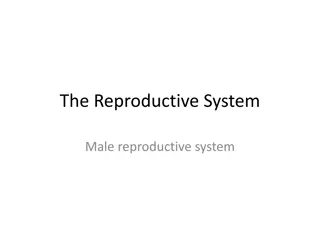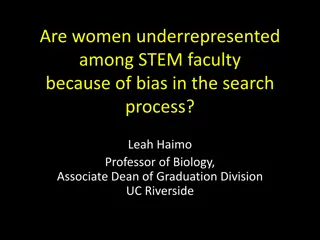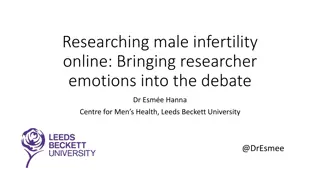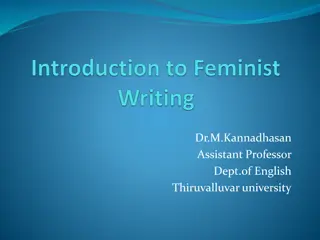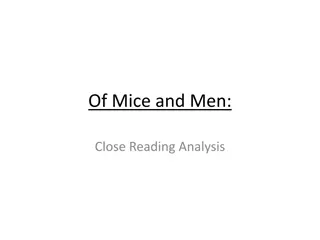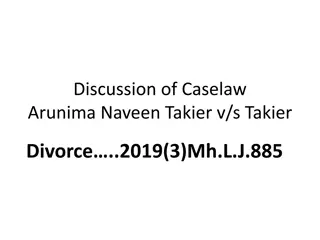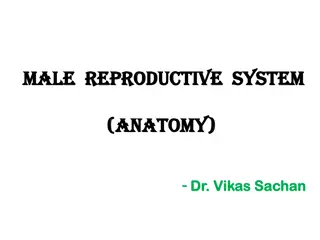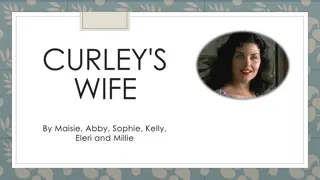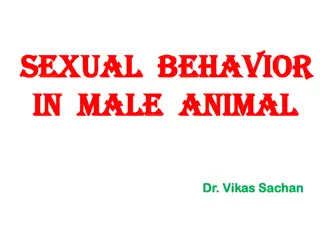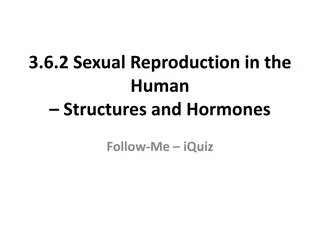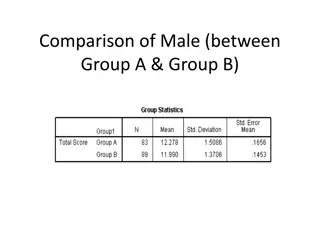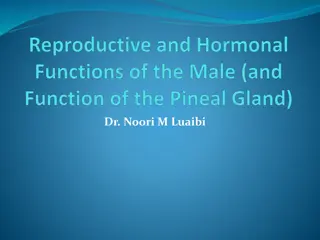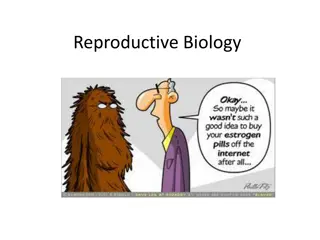Exploring Steinbeck's Portrayal of Curley's Wife in a Male-Dominated Society
Delve into the complex character of Curley's Wife in Steinbeck's novel, examining the cultural and societal contexts that influence her representation. Analyze the themes of isolation, longing, and societal expectations as seen through the lens of a fractured society. Gain insights into the nuanced portrayal of women and the all-male environment of the ranch, reflecting on the implications of gender roles and relationships in the 1930s.
Uploaded on Sep 22, 2024 | 0 Views
Download Presentation

Please find below an Image/Link to download the presentation.
The content on the website is provided AS IS for your information and personal use only. It may not be sold, licensed, or shared on other websites without obtaining consent from the author. Download presentation by click this link. If you encounter any issues during the download, it is possible that the publisher has removed the file from their server.
E N D
Presentation Transcript
Steinbeck and the feminine, or, Getting to know: Curley s Wife Sunday, 22 September 2024 Jonathan Peel UCGS 2014
What context do you bring? Consider what assumptions you make as you read and the effect of your own cultural context Cultural view of women in society Religious assumptions about morality All male environment in school Jonathan Peel UCGS 2014
What of the ranch? All male environment Males separated from family Only contact with women is the whore house Men are seen as dominant and strong Jonathan Peel UCGS 2014
What sort of society do we want? The choice: Sharing and caring vs Isolated and overtly Darwinian. In the middle: The family unit is it still relevant? Steinbeck in the 30s reflects attitudes developing across society When we read this text, there are huge similarities which link (y)our immediate view of Curley s Wife with the view of a fractured society which Steinbeck is exploring. Jonathan Peel UCGS 2014
An introduction to know Curley s Wife would be to love her a trusting yet hardened girl accustomed to a male- dominated society pretending to be something she is not, alone and unloved. John Steinbeck (and he should know!) Jonathan Peel UCGS 2014
First things, first To know Curley s Wife Suggests that we do not know her FIRST APPEARENCES She is introduced by Candy with negative connotation tart , got the eye all suggest her to be a wild and untrustworthy girl George accepts the story at face value Jonathan Peel UCGS 2014
She appears Silhouetted in the door, blocks light and turns dress opaque. Thrusts upper body (breasts) forward Ostrich feather shoes denote lack of suitability on a ranch connote? Ostriches are flightless birds and therefore trapped Dominant colour: Red. Passion, anger, danger Seems to have no real reason to be in the bunkhouse, so considered to be flirting. Possibly lonely. Jonathan Peel UCGS 2014
Male Dominated? She is the only woman on the ranch there is no Mrs Boss so no one to help her on the domestic front either. Men discuss her in male environment and focus on her sexuality and her sexual predation. Men seem scared of her: scared of her husband. Only Slim seems to accept her. Rumours of a relationship hey Good-looking evidence of relationship or of a cheerful and relaxed manner? She might be meeting up with him in the barn Jonathan Peel UCGS 2014
Hardened? Accustomed? Crooks room meanness. Crooks has drawn attention to men getting mean when lonely and tries to upset Lennie in a cruel and aggressive manner note the verb choices bored into Curley s Wife is vile and racially aggressive towards Crooks. Is there any mitigation possible? Jonathan Peel UCGS 2014
No, but No excuse for such blatant racial hatred. However: She has already noted that the weak ones have been left behind. This must include her. Her visit is presumably for company She is shunned by the three men who lie to her and refuse to engage She is obviously alone and unloved her husband is at a brothel a couple of weeks after the wedding. Jonathan Peel UCGS 2014
Has she become mean ? The word is too weak But her cruelty could be caused by her loneliness. She may believe what she says She may be responding in a manner that reflects the male-dominated society in which she lives. An immature outburst We still do not know her Jonathan Peel UCGS 2014
Barns and Lennie She meets Lennie in the barn. Two outsiders in a setting that is neither ranch nor nature They talk, after overcoming initial shyness She puts trust in Lennie. He is seen as a safe repository for confession in this novel. She tells her story and we get to know her Jonathan Peel UCGS 2014
Curleys Wife, a life: No name, no identity beyond her husband Living with mother in a backwoods town Longs for bright lights of the pitchers Meets itinerant man in the movies Spends night with him on the promise of a golden future No letter arrives she blames her mother, we may infer that one would never have come. Meets Curley at a dance, aged 16 Marries him Is awful lonely Jonathan Peel UCGS 2014
Do we change our perspective? Steinbeck witholds all this information and gives only a male perspective for most of the text We MUST reassess our view after her death scene His idea that to know would be to love suggests this Jonathan Peel UCGS 2014
What changes? before after She makes a small grand gesture she is living her dream of being an actress Doorway pose No real reason to try to visit A lonely young girl seeking company Meets Slim in the barn The barn is slightly removed from the maleness of the ranch it is a place of solace and privacy Tricky: she may be, but she is also an angry and upset young girl struggling to assert what little authority she has in her new home. A cruel racist Jonathan Peel UCGS 2014
Now we know her: We feel pity Pathos is generated by her story and her naivety Steinbeck allows the noises from outside the barn to act as an ironic commentary on her performance She really believes her dream - we know, thanks to intertextuality of the title and the description of her brittle voice that the dream would never come true Even her curls , little sausages , are softened and lose their artificiality in death She is allowed beauty: meanness and plannings and discontent and the ache for attention were all gone from her face Jonathan Peel UCGS 2014
meanness and plannings and discontent and the ache for attention were all gone from her face Pretending to be something she is not Does she think that pretending to be a film star will make the men like her? Does she imagine that pretending to be a hard- bitten racist, able to summon a lynch mob at the drop of a hat, will give her authority and respect? Jonathan Peel UCGS 2014
Response Easy to see every element hit in the original quotation. BUT: do we love her? I pity her and feel sorrow for her lot. I recognise the ranch society as a male dominated hell hole for anyone unfortunate enough to be weak and trapped within it. Symbolising the collapse of a civilised society on 1930s America. I feel the guilt Steinbeck intends for having followed all the males in writing her off in the first pages of our meeting I do not love her I fear her racism to be real I feel deeply sorry for a badly wounded piece of collateral damage. The recession and the new society symbolised by Curley and Carlson have done away with her. Jonathan Peel UCGS 2014
